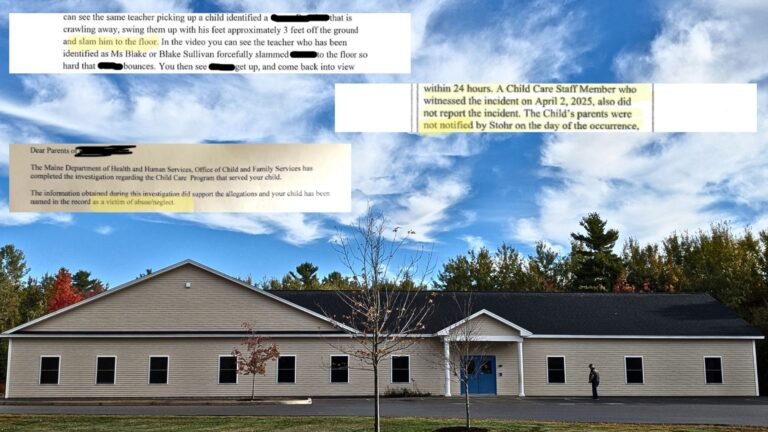Jessica Rainville can’t impeach Gov. Janet Mills, and she knows it.
Yet, out of self-described frustration with Mills “doing whatever she wants” by enforcing mask mandates and asking Mainers to spend more time at home last winter, Rainville started a Change.org petition to impeach the governor anyway.
“IT IS NOT OKAY TO DO THIS TO US,” Rainville wrote, followed by a diatribe against the governor, accusing her of using Mainers as a “bargaining chip” to secure federal dollars and forcing the tourism industry to suffer.
“It was an emotional response,” she said during an interview last Friday at Revolution in Rochester, N.H., an aptly named taproom for the conversation. Portraits of revolutionaries and satirists — Revolutionary War General John Stark, H.L. Mencken, Benjamin Franklin — hung on the walls inside.
“That’s what it felt like at the time. And so that was my like, rage-quit response. Like, I’m done. I can’t take it anymore. I understand some restrictions but it became so much more than that.”
A year later, and with close to 40,000 signees on her petition, most of Rainville’s complaints remain the same.
She is against masks, vaccines and lockdowns. She believes China is to blame for COVID-19’s spread across the globe. She thinks Dr. Anthony Fauci is a liar (she also believes he is a scapegoat for those who are “really making decisions”), and she thinks vaccine doubters are having their opinions suppressed.
“Of course I’m not a doctor or a scientist … Or even an expert. I obviously do have a lot to learn!” Rainville said in an email following the interview. “But I feel like today’s climate doesn’t allow for us to question and discuss.”
There are countless others like Rainville — 23,191 of the signatures of her petition came from people who said they are from Maine, according to Rainville’s analysis of the data.
Maine’s ability to contain COVID-19, let alone defeat it, may rest in the hands of people like them.
After a relatively successful early vaccination campaign, 72% of Mainers have received at least one shot of a COVID-19 vaccine and 66% are fully vaccinated. Yet Maine now has the highest COVID-19 transmission rate of any state in New England. One Mainer in three remains unprotected.
Realistically, experts and defiant citizens agree, there may be no end in sight when it comes to clashes over COVID-19, masks and vaccination. It’s too soon to tell if President Biden’s recent vaccination orders will make a difference.
“People are not going to find a common ground,” Rainville said.
Searching for answers
Jordan LaBouff, associate professor of psychology at the University of Maine, who has studied prejudice (mostly related to religion), attributed the resistance to masks and vaccinations to something he calls “intergroup bias.”

Intergroups bias is, generally, the “tendency to evaluate one’s own membership group or its members more favorably than a nonmembership group or its members,” according to the Annual Review of Psychology.
LaBouff explained that due to intergroup bias, people tend to dislike, misrepresent, misunderstand or not cooperate with outside groups. The more important that a group identity is to a person, the more likely that person is to “dislike and distrust and be unable to work with people from the other group.”
“So it’s not just that ‘I don’t want to get a vaccine,’ ” he said. “It’s that being forced to get a vaccine represents not just a threat to myself but a threat to my groups, my way of life, my culture, my heritage. It just takes on so much more importance than the individual act. It becomes a really big symbolic threat to myself and my group.”
COVID-19 cases trend upward
COVID-19 is on the rise both in Maine and nationwide.
There are three times as many people in the hospital, in intensive care units and on ventilators than a month ago in Maine, Dr. Nirav Shah, director of the Maine Center for Disease Control and Prevention, said on Twitter on Sept. 7. On that day, Maine had the highest COVID-19 transmission rate in New England.
Vaccines have proven to be safe, and they keep people out of the hospital when they come down with COVID-19. The FDA recently granted full approval to the Pfizer vaccine, ending the era of emergency use.
As for the likelihood that the vaccine and its side effects can hospitalize someone, Shah didn’t mince words.
“You are 100% more likely to be hospitalized because of COVID than you are because of the vaccine,” Shah said in August.
Masks work, too. Some are better than others, of course. An N95 mask will outperform a cotton mask, but tightly woven cotton will still prevent many airborne particles. This New York Times animation shows how different types of masks trap airborne particles.
Behind the defiance
Rainville, a voice actor from North Berwick, says she isn’t a conspiracy theorist but admits some of her friends may think so. She says she does her research by reading studies and listening to podcasts.
Specifically, she listens to Robert Malone, who claims to have invented mRNA, the technology used in the Moderna and Pfizer vaccines. The Atlantic recently wrote about Malone’s peddling of misinformation.
Rainville concedes that she never expected her impeachment petition to get the traction it did.
With almost 40,000 signatures — more people than live in Lewiston, Maine’s second-largest city — her online petition against Mills has garnered many times more signatures than some others with a similar goal. It has raised $8,000, she said, but that money is controlled by Change.org and is only used to boost the petition.
When she offered the petition a year ago, it gained early momentum, then died down. The petition’s recent boost in numbers can be attributed to Mills’ vaccination mandate for healthcare workers, Rainville said.
She has reached out to legislators and Republican U.S. Sen. Susan Collins, to no avail. Her representative, Rep. Tiffany Roberts (D-South Berwick) agreed to talk to Rainville but hasn’t done so yet.
Rainville understands that Maine has no law to recall the governor (or any other state official). A bill that would have established a recall system in the state failed to get out of committee in 2017.
The core issue, she said, is opposing government overreach. If Gov. Mills outlawed masks, for example, she would oppose that too. “You know what I’d say to that? I’d say the exact same thing.”
Rainville feels obligated to do something, adding that her next step may be to find a lawyer, as well as asking that signees reach out to their state representatives and senators.
Will people ever agree on COVID-19?
To overcome the many divides, LaBouff said people must begin to find common ground. That could mean many things, but he believes the sense of state pride existing among Mainers, and their desire to protect each other, could be important.
LaBouff added that today’s political rhetoric makes compromises challenging. Instead of everyone being “American,” different political groups define what they think it means to be American, thus alienating the others.
“That makes it sort of impossible to trust those other folks, or to develop a shared experience, because we don’t see them as members of that bigger group,” he said.
The inability to have meaningful conversations frustrates Rainville.
As she put it, if anyone tries to question “science,” they are ridiculed. People who raise questions about side effects or value of the vaccines are dismissed even though, to Rainville, those are important questions.
“I think not being able to have those intelligent conversations is what scares me the most. We should absolutely be allowed to question the (effectiveness) of the vaccine,” she said.
Being dismissed or ignored can have serious consequences, LaBouff said. It can embolden people with the opposite belief.
“If you tell somebody they’re stupid or even if you tell them they’re being threatening to their community, that is just going to entrench their beliefs and expand the divide, force people into their camps,” he said.







